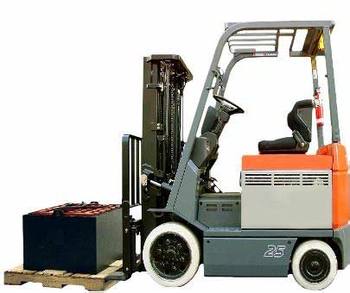
With the worsening of the domestic environment, lithium batteries with relatively small pollution are becoming more and more respected by the market. Correspondingly, the development of lead-acid batteries is under the pressure of environmental protection. Analyst Fang Hao pointed out that "lithium batteries replace lead-acid batteries as the future of battery energy has become overwhelming."
The pollution of severe lead-acid batteries has been plagued by domestic environmental protection. The pressures on the domestic environment have become even greater with the worsening of the environment and the awakening of people’s environmental awareness. As the material basis of the people’s lives, the necessary conditions for the development of the national economy and environmental protection issues have attracted the attention of the Chinese government in recent years. In connection with industrial development, a series of measures have been taken to curb overcapacity and indiscriminate deployment.
Lead-acid battery industry is one of the most polluted industries in the downstream industry of non-ferrous metals and has been criticized for a long time. Its main pollutants are Pb, PbO dust, acid mist, etc. The waste acid, waste alkali, and waste water discharged in the later stage of production are also extremely polluting to the water source.
In comparison, lithium batteries have a natural advantage in terms of environmental protection because they contain no contaminating heavy metals and do not produce pollutants during the production process.
As early as 2012, Wang Jinliang, vice president of the China Battery Industry Association, disclosed that the Tax Administration and the Ministry of Finance plan to impose a 5% consumption tax on lead-acid batteries. It is reported that relevant taxpayers have already received taxation drafts. The implementation of this taxation has basically become a foregone conclusion.
Fang Hao said that the suppression of policies has caused environmental protection costs to continue to rise. Compared with lithium batteries, the disadvantages of lead-acid batteries have become more prominent. This also indicates that lithium batteries will gradually invade the traditional lead-acid battery industry.
Environmental Background Supporting the Acceleration of the Development of Lithium Battery Industry In fact, in the context of environmental protection, the development of the lithium battery industry in recent years is indeed smooth.
Statistics show that in 2012, China's lithium battery electrolyte production has reached about 24,000 tons; and in 2013 this figure is estimated at 29,000 tons, an annual growth rate of 20%.
In 2012, the overall lithium battery market size in China was 55.68 billion yuan; in 2013, this figure was estimated at 74.17 billion yuan, an increase of 33.2% year-on-year. The industry expects that in 2015, the lithium battery market in China will exceed 100 billion yuan, reaching 125.15 billion yuan.
Fang Hao believes that the current lithium battery has been widely used in water, firepower, wind power and solar power stations and other energy storage power systems, and in recent years, the rise of energy-saving and new energy automotive industry is even more conducive to the development of lithium battery industry to a higher level.
It is reported that the State Council has already passed the “Energy-saving and new-energy automotive industry development plan (2012-2020)”. In the future, the electricity-driven automobile industry will be the strategic direction of industrial transformation. In 2015, the cumulative production and sales volume of pure electric vehicles and hybrid vehicles is targeted at 500,000 vehicles; in 2020, the target will exceed 5 million vehicles.
Fang Hao said that the global new energy automobile industry will show a rapid industrialization trend under the background of mature technology and continuous implementation of government support policies. This powerful booster is expected to further accelerate the development of the lithium battery industry.
It is worth noting that some market participants believe that lead-acid batteries will continue to dominate the market in the last 10 years due to cost reasons and 80% replacement rate in the entire field. Fang Hao pointed out clearly that the substitution of lithium batteries for lead-acid batteries will inevitably require a long period of transition, but with environmental advantages, lead-acid batteries will gradually withdraw from the stage of history.

 With the worsening of the domestic environment, lithium batteries with relatively small pollution are becoming more and more respected by the market. Correspondingly, the development of lead-acid batteries is under the pressure of environmental protection. Analyst Fang Hao pointed out that "lithium batteries replace lead-acid batteries as the future of battery energy has become overwhelming."
With the worsening of the domestic environment, lithium batteries with relatively small pollution are becoming more and more respected by the market. Correspondingly, the development of lead-acid batteries is under the pressure of environmental protection. Analyst Fang Hao pointed out that "lithium batteries replace lead-acid batteries as the future of battery energy has become overwhelming." 
